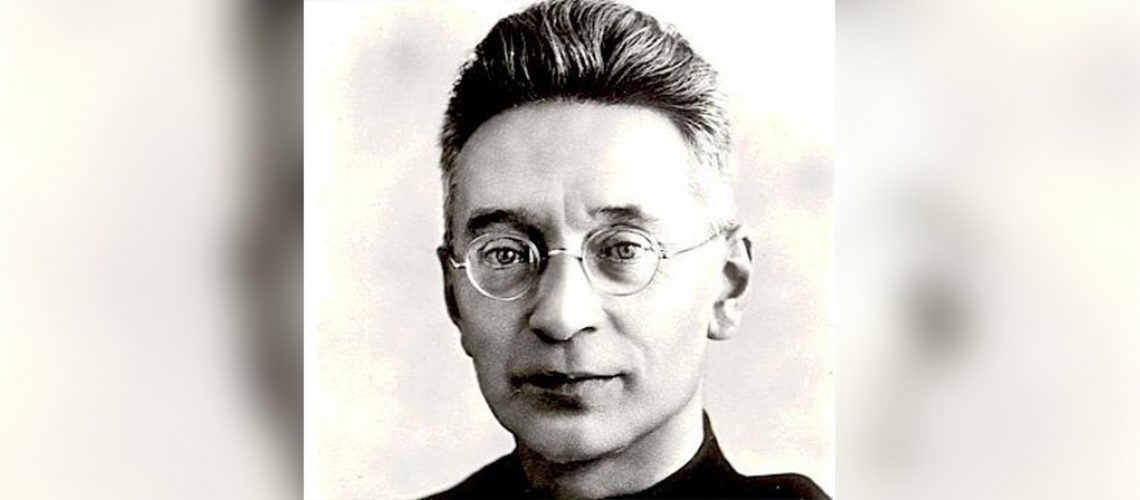Members of the Carmelite Family in Ireland, the Netherlands and around the world have greeted with great joy the announcement by Pope Francis that he will declare the Carmelite friar, Titus Brandsma, a saint on Sunday, May 15th at St Peter’s in Rome.
Irish Carmelites feel a special closeness to this new saint as he spent time in Ireland during 1935. Titus Brandsma stayed with his Irish brothers at Whitefriar Street, Dublin, and Kinsale, Co. Cork, as he improved his command of the English language ahead of a lecture tour in the United States. He wrote with warmth about his time in Ireland where he met, among others, the President of the Executive Council of the Irish Free State, Mr Eamon De Valera.
Within seven years of this happy time in Ireland Titus would be killed by lethal injection in Dachau Concentration Camp, on Sunday July 26th, 1942. The nurse who had administered the injection, and to whom he had given a rosary, later converted to Catholicism. She was a key witness in the early stages of the process for his beatification and canonisation. In her testimony she declared: “I was brought back to the right way through the intercession of Fr Titus. Personally, I consider him a martyr because National Socialism was a kind of anti-Christ”.
The Carmelite friar had come to the notice of the Nazi authorities even before their occupation of Holland in 1940. He had spoken and written critically of National Socialism both at the Catholic University of Nijmegen, where he was a professor, and in the National Press. A small book originating in Germany, but circulated in Nijmegen, accused Professor Brandsma and the other professors at the University of being “allies of communism.” He was dubbed “the Dangerous Little Friar.”
During the Occupation he actively opposed the publication of Nazi propaganda in Catholic newspapers and in the Press generally. He had been the National Adviser to the Union of Catholic Journalists since 1935 and was especially critical of anti-Semitism, a basic element of National Socialism. He was also an adviser to the Archbishop of Utrecht and, in this role, encouraged the Dutch Bishops to speak out strongly against the persecution of the Jews and the infringement of basic human rights by the Nazi occupiers.
In early January 1942, Titus showed tremendous personal courage when he agreed to deliver a letter from the Catholic bishops to the editors of Catholic newspapers. This letter instructed them not to comply with a new law requiring that they print Nazi advertisements and articles in their newspapers and journals. He had visited fourteen editors before being arrested by the Gestapo at the Carmelite priory in Nijmegen on January 19th, 1942.
By mid-June 1942 Titus had been transferred to the Concentration Camp at Dachau and for him, because of his weak physical condition, almost certain death.
The “dangerous little friar’ was 61 years old at the time of his killing. His suffering and death in Dachau were the price that Titus paid for his defence of human and Christian truths and values. He had spoken out boldly for freedom in the midst of tyranny: freedom of individual conscience, freedom of religion, freedom of the Press.
Many years before the word ecumenism had come into popular use, Titus Brandsma had been connecting with the members of other Christian Churches in the Netherlands: Eastern Christians and Protestants. He reached out to the Jewish people in their persecution. He took a particular stand on Jewish students, refusing to remain silent when they were excluding from attending Catholic schools.
The source of Titus’ brave stance was his profound faith in the God of Jesus Christ, the God of Abraham, who teaches that each woman and man is made in his image. The denial of this truth, Titus argued, contributes to the injustices and brutalities which flow from the politics of racial or national superiority.
Even as he suffered Titus was still able to pen this beautiful blessing: God bless the Netherlands! God bless Germany! May God grant these two peoples to return to the path of peace and freedom, and to recognise His Glory for the good of these two nations that are so close.
It is the wish of the Carmelite Family that the canonisation will make his Christian witness and courage known to more people. In a world where human and Christian freedom and values are still denied to many, the message of Saint Titus Brandsma is one of hope, forgiveness and reconciliation.
Short biographical note on Saint Titus Brandsma, O.Carm., (1881-1942)
Anno Brandsma was born in the Dutch province of Friesland in 1881. He joined the Carmelite Order in 1898 taking his father’s name, Titus, as his religious name. He made his First Profession in October 1899 and was ordained priest on June 17th 1905. As an academic, Titus specialised in philosophy and mysticism. He helped to found the Catholic University of Nijmegen in 1923 and later served as Rector Magnificus.
In the years before the Second World Titus was openly critical of the Nazi ideology. During the occupation of the Netherlands, he defended the freedom of the Press and of the Catholic Press in particular. He strongly opposed anti-semitism in any form.
Titus was arrested in January 1942 and sent to Dachau Concentration Camp where he was killed by lethal injection on July 26th 1942. He was beatified in 1985 and will be canonised in May 2022.
For more information on Titus Brandsma, click here.



